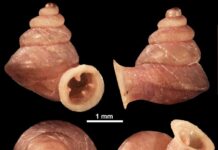THE scientific community has long held an understanding about the effect of temperature on sperm production in mammals, but this new study sheds light on how spermatogenesis in insects is hampered at extreme temperatures.
In the new scientific paper, published in the Journal of Evolutionary Biology, and an academic letter recently published in Trends in Ecology & Evolution, University of Lincoln evolutionary ecologist Dr Graziella Iossa and behavioural ecologist Dr Paul Eady explain how the temperature at which an animal develops can impact its reproductive behaviour and physiology.
Dr Iossa said: “It is well known that the reason why testes are usually located outside the body cavity in male mammals is because sperm is damaged by excessive heat inside the body. However, it is now becoming clear that when subjected to heat stress, males become infertile before females do.
“It is not only intriguing that males and females show different sensitivity to temperature stress, it may also tell us something about how species will be affected by climate change and how we might buffer or tackle these sensitivities.”
Dr Iossa and Dr Eady, from the School of Life Sciences at Lincoln, have been leading research in this area for a number of years. Their most recent work, published in the Journal of Evolutionary Biology, examined sperm production and the copulatory behaviour of male and female Indian meal moths.
The Indian meal moth produces two types of sperm – a fertilising eupyrene and a non-fertilising apyrene sperm. The production of both sperm types is hampered by rising temperatures.
The moths were exposed to different temperatures (ranging from 20 – 33°C) during their development and up to the point when, as adults, they were ready to mate. The study found that sperm got shorter (and were therefore less effective) the higher the temperature the moths were exposed to, and that both males and females were less likely to engage in copulation when reared at the highest and lowest temperatures. Where they did copulate, the duration also decreased with increasing developmental temperature.
Studies looking at the impact of climate change on species have looked so far at the ability of species to survive under heat stress. Dr Iossa and Dr Eady are among the first scientists to examine how different temperatures impact on the reproductive behaviour of a species and thus fertility.
Previous work on other insects and also plants has found that you can mate females who have been heat stressed to non-stressed males, and they can produce offspring, however the reverse doesn’t work – heat-stressed males are often infertile. This shows that spermatogenesis (the production of sperm) appears more sensitive to heat stress than oogenesis (the production of eggs). – University of Lincoln

















